亚马逊封闭5万中国卖家
8/14/2021
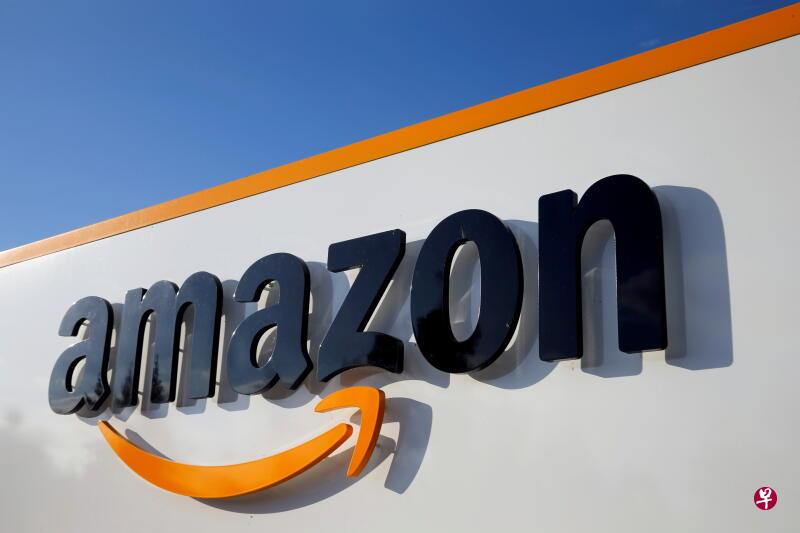
美国零售巨头亚马逊(Amazon)自5月起以向消费者索取虚假评论等为由,对平台上5万个中国卖家进行封店。消息人士透露,广东省官方前天(13日)召开调研座谈会,以了解亚马逊封店事件所带来的影响。
据中国《证券时报》引述消息人士报道,此次调研是根据广东省领导批示。广东省商务厅调研组前往深圳,了解跨境电商企业受亚马逊封店影响,以便制定相关措施,帮助受影响企业走出困境。
消息人士称,这个座谈属于小规模的闭门会议,参会的企业代表在10人左右,以跨境电商行业的深圳龙头企业为主,也有一些腰部的卖家。
调研会重点讨论的课题包括企业受亚马逊封店影响实际情况,包括封店数量、涉及产品品牌、被冻结资金、交易额影响以及裁员人数等;封店对企业正常生产经营造成了哪些困难;企业目前已采取哪些自救措施,如司法诉讼、平台申诉、清理海外库存等;以及需要政府部门提供哪些具体帮助。
据报道,亚马逊自5月起利用《卖家行为准则》等格式条款掀起一波“封店潮”,不少主营跨境电商的中国企业受到了很大影响。封号的原因主要有“不当使用评论功能”、“向消费者索取虚假评论”、“通过礼品卡操纵评论”等。
深圳市跨境电子商务协会统计,在过去的两个多月时间,亚马逊平台上被封店的中国卖家超过5万,已造成行业损失金额预估超千亿元人民币,而深圳电商行业在此次封店风波中受损最为严重。Marketplace Pulse公布的数据显示,在亚马逊上的中国卖家当中,深圳占了将近32%。
深圳市跨境电子商务协会会长王馨称,被封店的卖家反映,封店原因多是“违反平台规则”,主要就是涉嫌所谓测评问题,最典型的就是卖家随商品放置小卡片向客户索取好评,这是关停账号的重要事由。
王馨认为,当务之急是希望中国政府出面成立中美跨境电商贸易代表磋商专家团,牵头与亚马逊平台开展对话,寻求最优解决方案。此外,引导中国卖家合规化经营,尤其在中国跨境企业高度依赖亚马逊、PayPal、面簿、谷歌平台流量开拓全球市场的当下,不要触碰平台红线。
她也建议,中国卖家应加速开启全面建站之路,一方面可以考虑自建独立网站,另一方面可在速卖通、WISH、eBay、Lazada等海外平台开店。
‘Made in China, sold on Amazon’ community seeks to cut reliance on US e-commerce giant, trade group says
- Chinese merchants are seeking alternative online retail marketplaces to reach overseas consumers amid Amazon’s crackdown on platform violations
- Some of these merchants have started to invest in AliExpress, eBay, Shopify and other international online retail platforms
By Iris Deng
8/14/2021

The “Made in China, sold on Amazon” community plans to reduce their reliance on the world’s biggest e-commerce marketplace, according to a Shenzhen-based trade body, as Chinese merchants expect business conditions to get harsher on the US online retail site amid a crackdown that has shut down more than 50,000 of the group’s stores.
Chinese vendors must seek alternatives because Seattle-based Amazon.com is unlikely to ease up on its campaign against certain practices, such as encouraging customers to write good reviews, according to Wang Xin, executive chairman of Shenzhen Cross-Border E-Commerce Association, a trade body representing more than 2,600 cross-border trading companies in the city that sell products to consumers overseas.
“Amazon is determined to regulate sellers [on its platform], especially after the influx of Chinese merchants in the past few years,” Wang said on Tuesday. “Their rules will only become more stringent.”
The association was established in 2014 by 52 cross-border merchants in Shenzhen, known as China’s answer to Silicon Valley and home to some of the country’s biggest technology companies. The city has more than 40,000 firms involved in the cross-border e-commerce business, which account for about 35 per cent of this sector across China, according to the trade body.
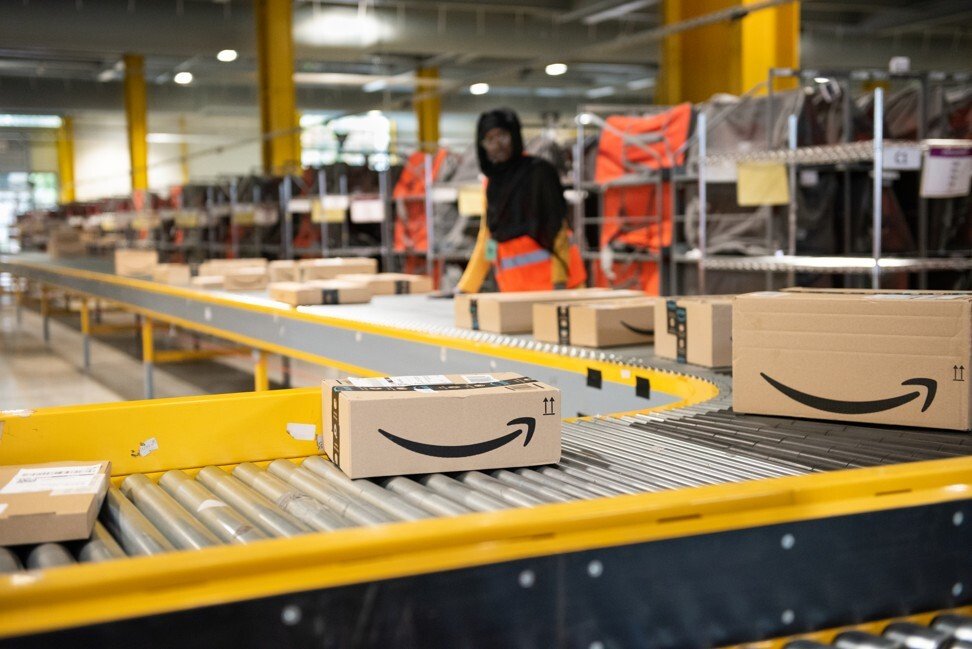
As more Chinese merchants have flocked to international retail sites like Amazon and eBay to reach additional consumers, some have brought with them grey area practices common in Chinese marketplaces. These include making up fake reviews and inflating sales numbers, according to industry insiders.
Wang from the Shenzhen trade group said it was fairly common for Chinese vendors to offer cards or gifts to consumers in exchange for good reviews. She described Amazon’s crackdown as “unreasonable” and not completely justified.
“These practices have been around on the platform for over five or six years … but Amazon only chose to stamp it out when Chinese brands grew rapidly on foreign platforms,” Wang said.
She indicated that the Covid-19 pandemic put the online shopping trend on the fast track in the US and Europe, where consumers used to favour shopping in bricks-and-mortar stores. “Manufacturers and suppliers in China, which has long been the world’s factory, have been eyeing a shift in shopping behaviour to venture abroad,” she said.
With Amazon less accommodating, some Chinese merchants are investing more on other online retail platforms such as eBay and AliExpress, Wang said. AliExpress, a global marketplace for overseas consumers to buy directly from manufacturers and distributors in China, is a major business under Alibaba Group Holding, owner of the South China Morning Post.
“We are about to witness other platforms compete to do business with Chinese merchants who have been driven away by Amazon”, Wang said.
Canadian e-commerce platform Shopify, for example, allows third-party vendors to keep all revenue from the first US$1 million they make on its app store, according to its announcement in June. It has also cut commission fees to 15 per cent, down from 20 per cent, for stores with more than US$1 million annual sales.
Chinese cross-border e-commerce vendors represented 75 per cent of all new merchants on Amazon in January, according to a report by consultancy Marketplace Pulse. The share of these sellers on Amazon’s US site surged to 63 percent this year, up from 28 percent in 2019.
Chinese merchants, however, have borne the brunt of US e-commerce giant Amazon’s crackdown against paid reviews and other violations.
At least 50,000 Chinese seller accounts on Amazon have been negatively affected by the crackdown since May, which has caused a loss of more than 100 billion yuan for the “Made in China, sold on Amazon” community, according to the Shenzhen trade organisation’s estimates in July.
This move closed down online stores operated by some of the biggest Chinese brands on Amazon, including Tomtop Technology, Shenzhen Youkeshu Technology and Shenzhen DAK Technology Co, and Aukey and Mpow. In Youkeshu’s case, 340 of its online stores were closed and more than 130 million yuan (US$20 million) of its funds were frozen by Amazon.
The affected Chinese vendors are now scrambling to get the ban lifted and their inventory returned by Amazon warehouses, but none have succeeded so far, said Wang.
In June, Amazon said in a statement that the sweeping removal of third-party sellers for review manipulation was necessary to protect consumers. “To help earn the trust of customers, we devote significant resources to preventing fake or incentivised reviews from appearing in our store,” the company said.
Still, many Chinese merchants are expected to carry on at Amazon, despite its rules.
“One member told me they’re opening hundreds of new accounts on Amazon [in case they cannot get their old ones back], even though it will significantly increase its costs in terms of compliance and accreditation,” Wang said.
US must outcompete China for a stable relationship: Daniel Russel
Beijing’s aggression comes from perception that America is declining, former official says
TSUYOSHI NAGASAWA, Nikkei staff writer
7/10/2021
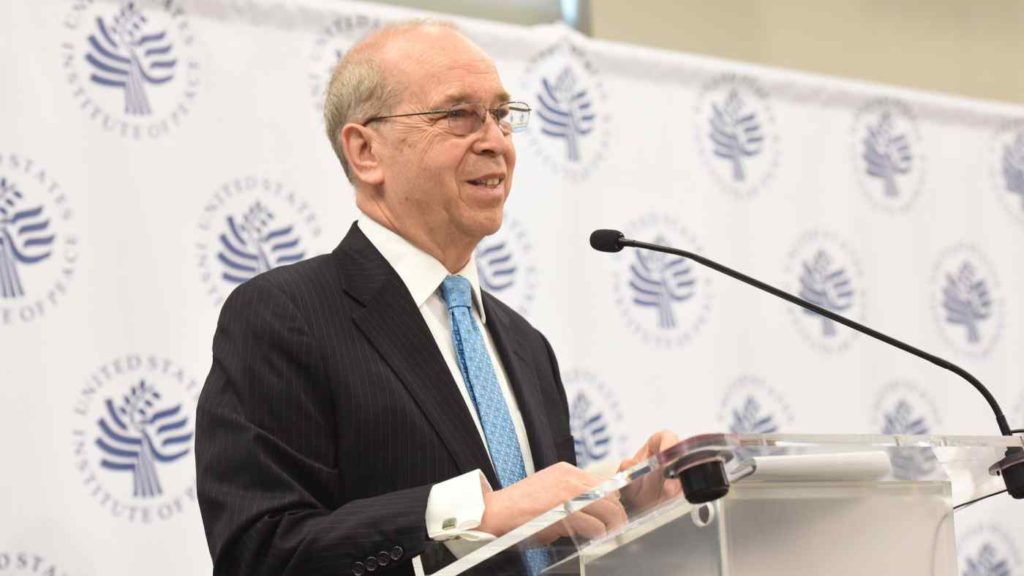
WASHINGTON — The secret visit of U.S. Secretary of State Henry Kissinger to Beijing on July 9-11, 1971, kicked off an American policy of engagement with China. Fifty years later, with China on track to overtake the U.S. economy as early as 2028, bilateral relations are at a crossroad.
In an interview with Nikkei, Daniel Russel, former U.S. assistant secretary of state for East Asia and Pacific affairs during the Obama administration, said the nature of the relationship is changing, and it would be wrong to assume that Washington would return to the “good old days,” supporting China’s growth while making an effort to avoid friction and confrontation.
But Russel, now vice president for international security and diplomacy at the Asia Society Policy Institute, also stressed that aiming for regime change in Beijing is unrealistic and unwise, and would be in line with the “catastrophic” failures of attempted regime changes in the Middle East.
Edited excerpts from the interview follow:
Q: Since Kissinger began an engagement policy with China in the 1970s, the U.S.-China relationship has been relatively stable. The U.S. has invited China into the international system. Looking back, how do you evaluate the pros and cons of this policy?
A: If we took a step back and looked broadly at the historical record, we see that the United States deliberately chose a policy of engaging China and supporting its development, first back in 1972 under President Richard Nixon, where this was part of the strategy for containment of the Soviet Union, but then again in the ’90s, when Bill Clinton was president, after the end of the Cold War, the collapse of the Soviet Union. There was a second policy of engaging China that led up to the entry of China into the WTO.
From the Clinton era on, America’s policy toward China was based on the view that a stable China, a prospering China, would serve the best interests of the United States, in part because a weak China, or an insecure China, would likely pose a lot of risks to U.S. interests and to our allies.
I’ve never heard a persuasive argument that it would have been better to do something different than engagement, at those junctures. The United States made a common-sense decision, to try to engage China and to shape its behavior, to integrate China and to give it a stake in the international system, that the United States had largely designed.
And, while people hoped for political liberalization, I don’t think that political liberalization was the reason that the U.S. government and other governments took this approach, because what was the alternative?
Who is going to argue that an effort to isolate China and to contain China, or to destabilize China would have been a better strategy? It would have been a recipe for disaster.
Today, there is a kind of new conventional wisdom that is based on the view that cooperation with China is impossible, that engagement with China is a failure.
If you look at the historical record, that’s just not defensible, that’s not true.
But that doesn’t mean that we can go back to the “good old days” where we tried to support China’s growth, where we made an effort to avoid friction and confrontation.
There are two reasons for this.
In the past, as long as there was a large disparity, a gap, in military power and economic power between the two countries, the relationship was reasonably stable. But China has become much more economically successful and much more militarily and technologically capable. China is now close to being a peer power to the United States, which it never was.
Secondly, in the Xi Jinping era — which now is about almost nine years — China’s leadership has become more assertive, more ideological, and more brazen, more overt, in challenging global norms and challenging U.S. leadership. We’ve seen bullying behavior intensify by China.
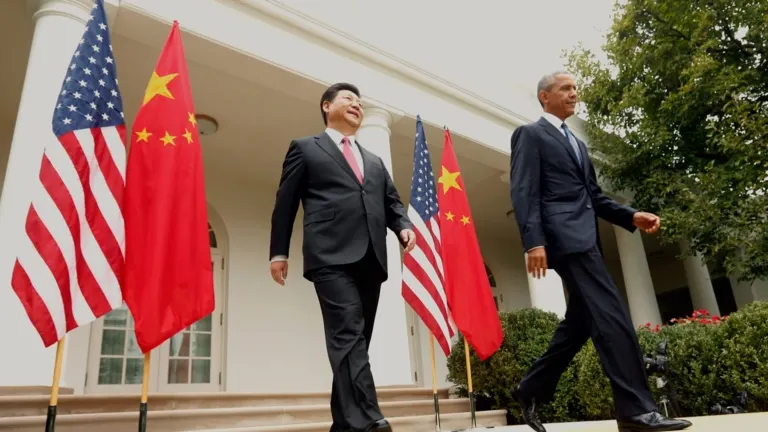
Q: What were negotiations with China like in the years of President Barack Obama?
A: We had two very different experiences with the Chinese. On the South China Sea, Obama had very direct, very blunt, discussions with Chinese President Xi Jinping repeatedly, from 2013 and the Sunnylands meeting on, each time more forcefully warned Xi that China’s island building, its reclamation, its activities, were creating risk, and that the United States had a responsibility to the defense of the Philippines and more broadly had a strong commitment to freedom of navigation, and could not accept efforts by China to claim the so-called nine-dashed line, or to develop outposts in international waters, and that this was damaging the U.S.-China relationship.
Finally, in the meeting in 2015, Xi made an assurance, and he made a public assurance as well, that China would not militarize the outposts that it built.
But, in that case, China did not ultimately honor that commitment, and the problematic behavior continued. And it had a very damaging effect on U.S. relations with China.
The issue of cyber theft, and particularly the Chinese government’s sponsorship of cyber-enabled theft of American intellectual property from companies, that was a different experience, because for years Obama raised this issue with Xi and warned of consequences, and told Xi that, although China was denying it, the United States knew that China was conducting these attacks, and that they couldn’t hide from us.
And finally, the Chinese saw evidence that the United States was preparing to take very severe action in retaliation for this, and the Chinese leadership recognized that they were reaching a dangerous, critical point, and so they sent to Washington the top security official in China, Meng Jianzhu, who came with instructions: don’t come home without an agreement.
And he stayed in Washington for several days. He met with the U.S. government team. And you may remember that the U.S. and China issued a four-point agreement. In that agreement, China essentially acknowledged that this cyber theft had occurred, committed to end it, and made some public commitments that they did implement, they did honor.
For several years after that, the U.S. agencies that were monitoring cyberattacks formed a judgment that China had, in fact, scaled back significantly the attacks that at least the government, the state, was supporting.
Q: Based on those lessons, how should the U.S. approach China?
A: My judgment is that Chinese behavior has become much more troubling and dangerous as Chinese leaders have begun to believe that they are as strong as the United States, that they are getting stronger and the U.S. is getting weaker.
I don’t think that it is wise or feasible to pursue a strategy of weakening China. Instead, it is necessary and wise to pursue a strategy of strengthening the United States and its allies because, as I pointed out before, when the power differential between the United States and China was wider, the relationship was very stable.
As long as the Chinese perception is that the United States is weak, is on the decline, is withdrawing from its traditional role in shaping and often leading international affairs, in rules-setting and so on, and has abandoned the sort of moral high ground that gave the United States so much soft power over the decades, China is incentivized to challenge more directly.
If and when the Chinese leaders see more evidence that the United States is demonstrating resilience, is renewing and reinventing itself, that the overall strength of the democratic communities is growing, not shrinking, the Chinese leaders will be much more open to compromise. They will be much more flexible, much more careful, in their behavior.
Chinese leaders are Leninists and Leninists respect strength and have contempt for weakness.
If the United States, over the course of this year, shows, for example, extraordinary ability to stop the spread of COVID-19, an extraordinary ability to develop vaccines that have 96% to 97% effective rates, demonstrates the ability to manufacture billions of doses and make them available to countries around the world, whereas China, despite its very strict and draconian controls, now continues to battle emerging cases of the delta variant, and the Chinese vaccine, Sinovac, which they have distributed around the world, is now revealed to be far less effective in preventing COVID than advertised, that’s a way in which the United States is already demonstrating its strength.
It is already outcompeting. We’re not hurting China. We’re not blocking China. But we are outperforming China.
Q: You talked about the leadership of Xi Jinping himself. How is he different from former presidents Hu Jintao and Jiang Zemin before him?
A: Jiang Zemin and Hu Jintao were not democrats; they had no interest in sharing power. But they were also pragmatists, and they were continuing the tradition of Deng Xiaoping, the tradition of “hiding and biding,” the tradition of opening and reform.
Xi Jinping represents a more nationalist and a more ideological strain of Leninism. In the Chinese communist system, he is clearly representing those who believe that more control is the right answer, and that political liberalization is a recipe for disaster that China cannot afford.
Q: China hawks in the U.S. have argued that the biggest problem is the Chinese Communist Party and thus the U.S. should seek regime change.
A: Number one, the people who are advocating regime change are the very people that have experimented with regime change in Iraq, in Libya, and other parts of the world. And, in every case, it has been a catastrophic failure. It’s not only that it didn’t succeed; it’s that it created immense problems in the country and immense problems in the United States.
The United States does not have the power to overthrow the Chinese Communist Party, and we know from experience that, even if we were successful, the consequences are unpredictable and immensely dangerous.
We can certainly hope for a change and an improvement. There’s much that we can do to bolster civil society within China, and much we can do to help strengthen institutions other than the Chinese Communist Party, in China.
There is a lot of pressure that can be applied externally on the Chinese leadership to limit their behavior. But the notion of the United States reaching in and changing the government in China is unrealistic and unwise.
Q: Is there a similarity between the current situation and the 1970s, in the sense that the Biden administration is now seeking a stable and predictable relationship with Russia so as to focus more on China and try to drive a wedge between China and Russia?
A: The big difference in the 1970s was that Moscow and Beijing were in an intense rivalry and were virtual enemies. Another difference was that the U.S. and the Soviet Union were in a very significant Cold War, in which we had very little economic or other mutual dependencies and were largely separated into independent blocs, and we were competing around the world for influence, in a very direct way.
Today, Russia is a relatively weak power that is largely focused on making problems, making mischief for the U.S. and for the West.
And the relationship between Moscow and Beijing is very cooperative, very collaborative. And unlike the Soviet Union, China is well integrated into the global system, the multilateral system, and the degree of economic and technological integration between China, the United States, and the rest of the West, is unimaginably large.
So, I think, in those respects, we’re in a very, very different world. And, while it is problematic for the United States when China and Russia cooperate in causing problems for us and our friends, and while there would be some virtue and value in trying to provide incentives for Moscow to moderate its behavior and to refrain from that kind of mischief-making, I don’t think there is any prospect for a kind of fundamental alteration of the triangular relationship, the way that Kissinger and Nixon changed it in 1972.
China beating US by being more like America
Cultivating human capital will be essential if the US rather than China is to be the base of the next industrial revolution
By BRANDON J WEICHERT
4/25/2021
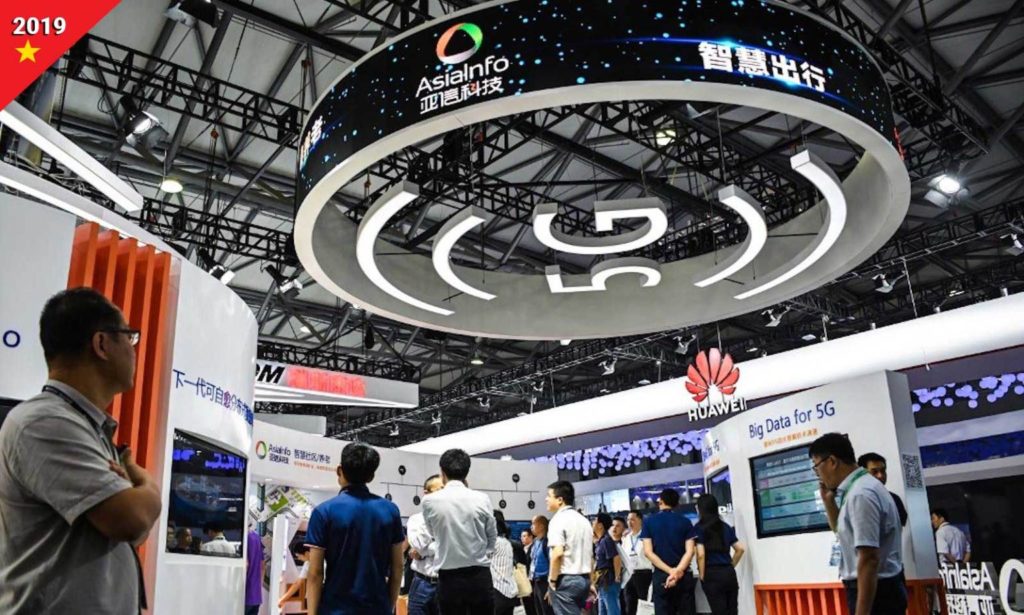
The United States transitioned from an agrarian backwater into an industrialized superstate in a rapid timeframe. One of the most decisive men in America’s industrialization was Samuel Slater.
As a young man, Slater worked in Britain’s advanced textile mills. He chafed under Britain’s rigid class system, believing he was being held back. So he moved to Rhode Island.
Once in America, Slater built the country’s first factory based entirely on that which he had learned from working in England’s textile mills – violating a British law that forbade its citizens from proliferating advanced British textile production to other countries.
Samuel Slater is still revered in the United States as the “Father of the American Factory System.” In Britain, if he is remembered at all, he is known by the epithet of “Slater the Traitor.”
After all, Samuel Slater engaged in what might today be referred to as “industrial espionage.” Without Slater, the United States would likely not have risen to become the industrial challenger to British imperial might that it did in the 19th century. Even if America had evolved to challenge British power without Slater’s help, it is likely the process would have taken longer than it actually did.
Many British leaders at the time likely dismissed Slater’s actions as little more than a nuisance. The Americans had not achieved anything unique. They were merely imitating their far more innovative cousins in Britain.
As the works of Oded Shenkar have proved, however, if given enough time, annoying imitators can become dynamic innovators. The British learned this lesson the hard way. America today appears intent on learning a similar hard truth … this time from China.
By the mid-20th century, the latent industrial power of the United States had been unleashed as the European empires, and eventually the British-led world order, collapsed under their own weight. America had built out its own industrial base and was waiting in the geopolitical wings to replace British power – which, of course, it did.
Few today think of Britain as anything more than a middle power in the US-dominated world order. This came about only because of the careful industrial and manipulative trade practices of American statesmen throughout the 19th and first half of the 20th century employed against British power.
The People’s Republic of China, like the United States of yesteryear with the British Empire, enjoys a strong trading relationship with the dominant power of the day. China has also free-ridden on the security guarantees of the dominant power, the United States.
The Americans are exhausting themselves while China grows stronger. Like the US in the previous century, inevitably, China will displace the dominant power through simple attrition in the non-military realm.
Many Americans reading this might be shocked to learn that China is not just the land of sweatshops and cheap knockoffs – any more than the United States of previous centuries was only the home of chattel slavery and King Cotton. China, like America, is a dynamic nation of economic activity and technological progress.
While the Chinese do imitate their innovative American competitors, China does this not because the country is incapable of innovating on its own. It’s just easier to imitate effective ideas produced by America, lowering China’s research and development costs. Plus, China’s industrial capacity allows the country to produce more goods than America – just as America had done to Britain
Once China quickly acquires advanced technology, capabilities, and capital from the West, Chinese firms then spin off those imitations and begin innovating. This is why China is challenging the West in quantum computing technology, biotech, space technologies, nanotechnology, 5G, artificial intelligence, and an assortment of other advanced technologies that constitute the Fourth Industrial Revolution.
Why reinvent the wheel when you can focus on making cheaper cars and better roads?
Since China opened itself up to the United States in the 1970s, American versions of Samuel Slater have flocked to China, taking with them the innovations, industries, and job offerings that would have gone to Americans had Washington never embraced Beijing.
America must simply make itself more attractive than China is to talent and capital. It must create a regulatory and tax system that is more competitive than China’s. Then Washington must seriously invest in federal R&D programs as well as dynamic infrastructure to support those programs.
As one chief executive of a Fortune 500 company told me in 2018, “If we don’t do business in China, our competitors will.”
Meanwhile, Americans must look at effective education as a national-security imperative. If we are living in a global, knowledge-based economy, then it stands to reason Americans will need greater knowledge to thrive. Therefore, cultivating human capital will be essential if America rather than China is to be the base of the next industrial revolution.
Besides, smart bombs are useless without smart people.
These are all things that the United States understood in centuries past. America bested the British Empire and replaced it as the world hegemon using these strategies. When the Soviet Union challenged America’s dominance, the US replicated the successful strategies it had used against Britain’s empire.
Self-reliance and individual innovativeness coupled with public- and private-sector cooperation catapulted the Americans ahead of their rivals. It’s why Samuel Slater fled to the nascent United States rather than staying in England.
America is losing the great competition for the 21st century because it has suffered historical amnesia. Its leaders, Democrats and Republicans alike, as well as its corporate tycoons and its people must recover the lost memory – before China cements its position as the world’s hegemon.
The greatest tragedy of all is that America has all of the tools it needs to succeed. All it needs to do is be more like it used to be in the past. To do that, competent and inspiring leadership is required. And that may prove to be the most destructive thing for America in the competition to win the 21st century.
Source: https://asiatimes.com/2021/04/china-beating-us-by-being-more-like-america/
Feb 18, 2021
Aug 4, 2020


